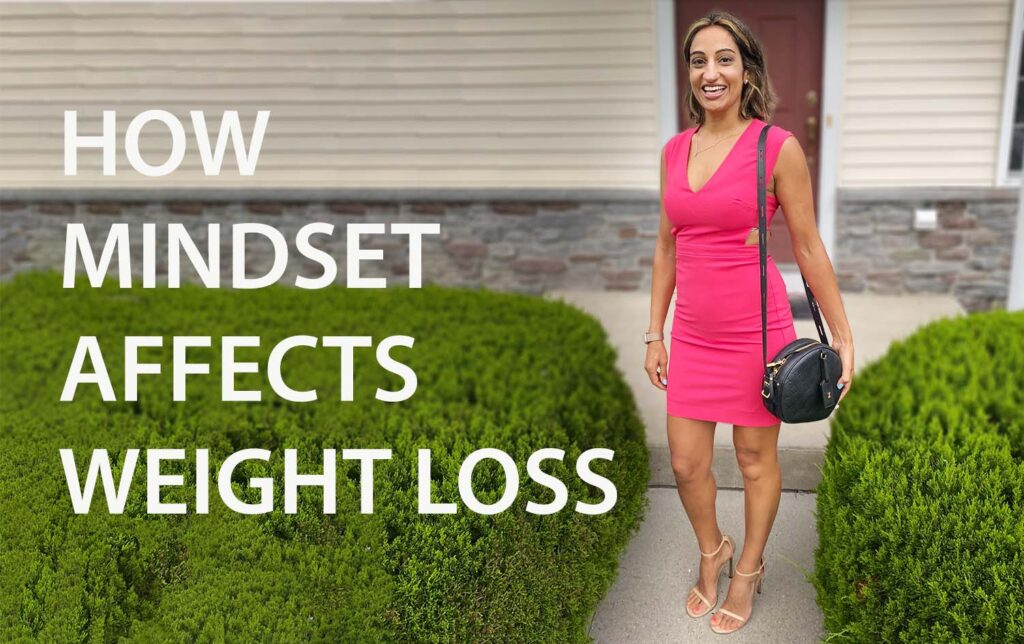
How Mindset Affects Weight Loss
A few years ago, I started working with a new client, Patty. Patty, in her early 60s, had been gradually gaining weight for the past 20 years and hadn’t been able to lose it. In fact, Patty was now at the maximum weight of her life. She knew she had to do something, but she had the mindset that each pound was a consequence of getting older.
That was until she realized that those pounds had added up to the point that she had been diagnosed with diabetes. And with Patti’s realization that she wanted to live a healthier, longer life, and avoid dementia, which ran in her family and is the result of high sugar, her entire mindset shifted. Once we started working together, Patti completely got off of sugar and lost seven inches from her waist, five inches from her hips and over 20 pounds and quickly lowered her A1Cs in a relatively short period of time…and, because the weight loss was inspired by her new mindset, she lost it in a sustainable way.
What is mindset, anyway?
According to VeryWellHealth, your mindset is “a set of beliefs that shape how you make sense of the world and yourself. It influences how you think, feel, and behave in any given situation.” Your mindset informs your actions, which in turn informs your outcomes.
When we talk about mindset in the context of how it affects weight loss, we can be talking about several different things: your relationship with food, your belief that you can lose weight (or keep it off), and what you see when you look at yourself in the mirror. Once you define what mindset means to you in the context of your weight loss goals, and begin to identify where your mindset blocks are, you’ll be able to start the work of shifting your mindset so that you can achieve sustainable weight loss.
Is mindset important for weight loss?
Almost every person who’s come to me in the past has had luck losing weight in the past—anywhere from 10 to 70 pounds. And almost every one of them gained back the weight they’d lost—and possibly more. This is because we see “diets” as a means to an end. A very restrictive diet for a limited period of time might help you lose a few pounds before a beach vacation, but frequently the accompanying mindset is “I lost weight and I succeeded and so now I can go back to my old habits.”
What if, instead of thinking about losing some weight before putting on a bikini, people approached weight loss like Patti, with long-term goals and benchmarks that will leave you feeling better in your body whether you’re on a beach or in your office? This involves a mindset shift.
The connection between mindset and weight loss is well documented. Research suggests that positive self-talk can make you more successful at losing weight and help you get back on track if you find yourself skipping a day at the gym or indulging in a second slice of birthday cake.
Similarly, emphasizing healthy outcomes—what your life will look like if you do lose the weight versus what could happen if you don’t—has been shown to have a positive impact on the types of food and portion sizes selected by dieters, which can lead to positive weight loss outcomes.
When you’re embarking on your weight loss journey, you want to build habits that you can keep practicing for the rest of your life. A subtle mindset shift from “I’m going on a diet because I have to take some weight off” to “I’m taking the steps necessary to change my lifestyle so my weight loss is sustainable” can make all the difference between gaining back all the weight you’ve lost, and keeping the weight off for good.
Can your weight affect your mindset?
The relationship between weight loss and mindset is a two-way street.
Your mindset can affect your weight loss or gain, but it’s just as easy for your weight loss or gain to affect your mindset.
When people gain weight—or struggle to lose weight they’ve gained or eat a “bad” food that’s been a trigger in the past for weight gain—they often start to feel down about themselves.
This, then, creates a self-perpetuating cycle. When that number on the scale starts to tick up, many people adopt the mindset that “I gained weight and I’m a failure and I guess this also means I can’t actually lose the weight.” The more they gain, the lower they feel; and the lower they feel, the more they gain. At some point, they may even begin to speak harshly to themselves, and this negative self-talk can drive overeating and other self-destructive behaviors…leading to more weight gain, leading to more negative self-talk, leading to lower and lower feelings about themselves.
Instead of beating yourself up about what the scale is telling you, try out a very deliberate mindset shift. Don’t tell yourself: “I gained weight and I’m a failure,” but rather: “I gained weight but I’m choosing to do something about it now, before I gain anymore,” or even: “I gained weight because I went all-in on my cheat day and now I am committing to monitoring how my body reacts to that kind of food and making better choices going forward.”
Of course, the numbers on the scale are more than just numbers: they can be an indicator of your overall gut health. And because of something known as the brain-gut connection, when you’re at a higher weight or you’re not eating foods that are right for your body, it can affect your mental health. As researchers at Harvard Medical School have explained, a person’s stomach or intestinal distress can be the cause of anxiety, stress, or depression. So it’s not just that seeing that higher number can put your mindset into a tailspin, it’s that the factors behind that higher number can have a very literal effect on your mind itself. It might take a little more time in this case, but eventually, you may find yourself getting to a point where you say: “I’m done letting this weight affect my mental health and I’m going to figure out a solution that works for me.”
How can you get into a weight loss mindset?
Just like my client Patty, whom I mentioned at the top of this post, getting into a weight loss mindset is sometimes as simple as saying: “I give myself permission to lose the weight.” Patty realized she now refused to go another size up in clothing and buy bigger pants and she committed herself to making a chance.
For other people, it might not be so simple. The concept of weight loss is extremely loaded for some people, especially if you’ve tried before and failed, so rather than simply thinking about “I need to lose weight,” I recommend shifting your mindset to: “I want to focus on a healthy lifestyle.”
Another thing many people find helpful when trying to get into a weight loss mindset is having a sense of curiosity about themselves, and about weight loss more generally. Many people ask me about certain diets that promise they can lose ten pounds in ten days, or because they’ve heard of a certain supplement or superfood that’s supposed to be a weight-loss gamechanger. Not everyone will lose weight at the same pace, or by eating the same foods or following the same regimen. I’ve found that certain “healthy” foods can produce an inflammatory response in some people that actually leads to the development of more belly fat, for example, and that intermittent fasting only works for a very specific type of person and that it. I appreciate it when people ask me about these things because I’ve found that the more you can understand that there is no one-size-fits-all approach to weight loss, and the more you can learn about what works well in your body, the easier it becomes to get into the right mindset for weight loss.
You’re not always going to be able to maintain your weight loss mindset. Motivation comes in waves and we’re never, ever going to be 100% motivated to do something 100% of the time. The trick is to find those times when you’re in the right mindset to build momentum and create a sustainable system that you can implement almost automatically so that even when you have one of these little lapses in your weight loss mindset, you’re still taking the actions that will help you achieve your goals.
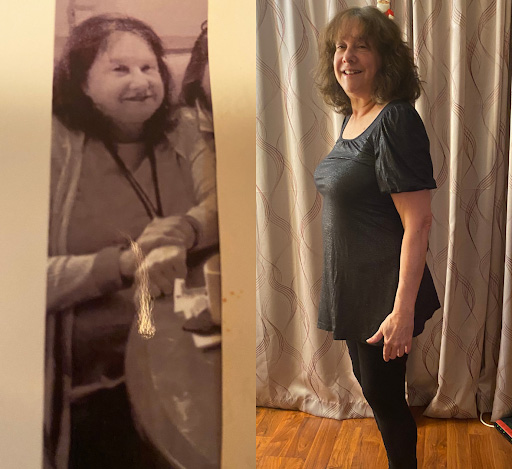
Can a weight loss coach help my mindset?
Many weight loss coaches pedal programs that aren’t actually customized to their client’s individual needs. Even if their clients are already in the right mindset for weight loss, this failure to customize can lead to disappointing or even negative results…which could then sink their mindsets.
Anyone can claim to be a weight loss coach; fewer are weight loss mindset coaches—that is to say, weight loss coaches with a deep understanding of the relationship between mindset and losing weight, and a commitment to helping their clients with both. If you’re hoping to find a weight loss coach to help you meet your goals, I can’t recommend strongly enough finding a coach who can help you get and stay in the right mindset first.
I struggled with my weight for years and tried every diet on the market before I finally lost 40 pounds…which I’ve managed to keep off for more than a decade. In addition to doing tons of research about nutritional information and learning to modify recipes to include fat-burning foods, I learned how important it was to adopt a positive, weight-loss-oriented mindset. I wanted to have the energy to do fun things with my family. I wanted my clothes to fit me. I wanted to feel comfortable in my own skin. Once I made the decision to shift my mindset toward these goals, I started to lose weight faster than I had ever thought possible, and I’ve kept it off for a decade. I didn’t focus on losing weight: I set my mind to live a healthy lifestyle. It’s worked for me, and it’s worked for the more than 800 women I’ve helped to lose weight as an online weight loss coach.
Interested in learning more about weight loss accountability strategies and tools from MasalaBody? Check out my 8-Week Slim Down Jumpstart Personal Weight Loss Program. You can also book a call with me if you’re ready to get started.




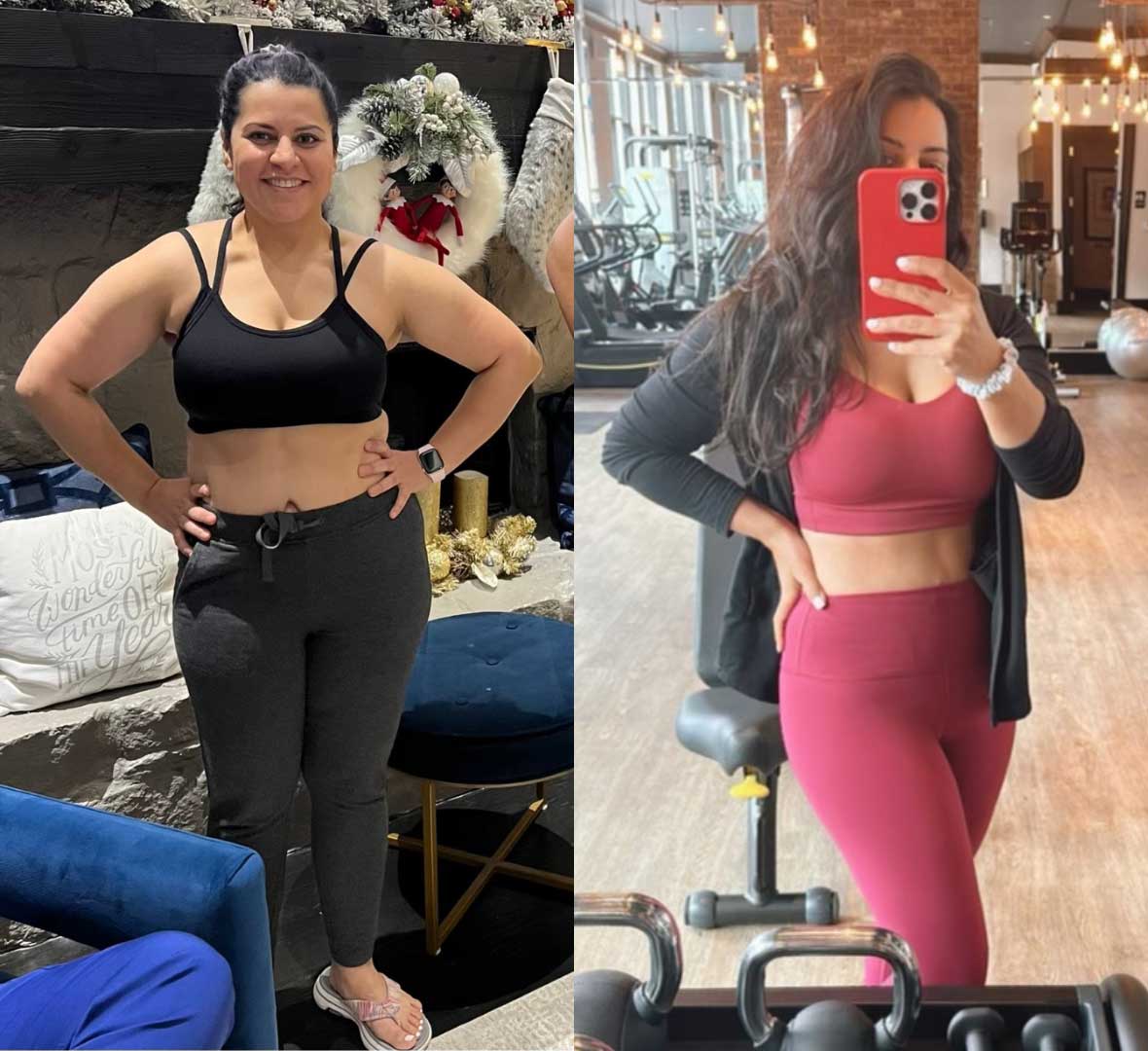

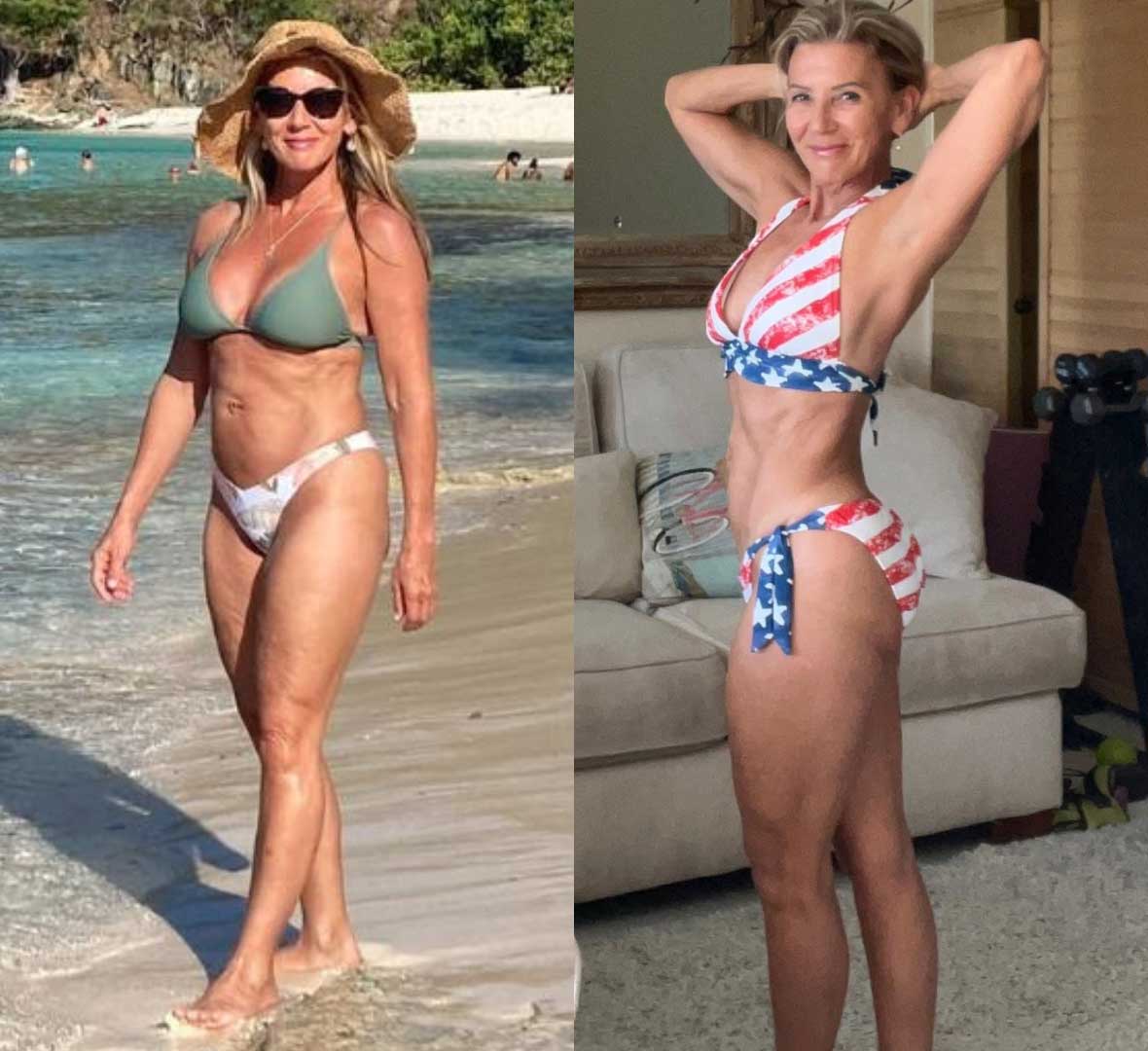



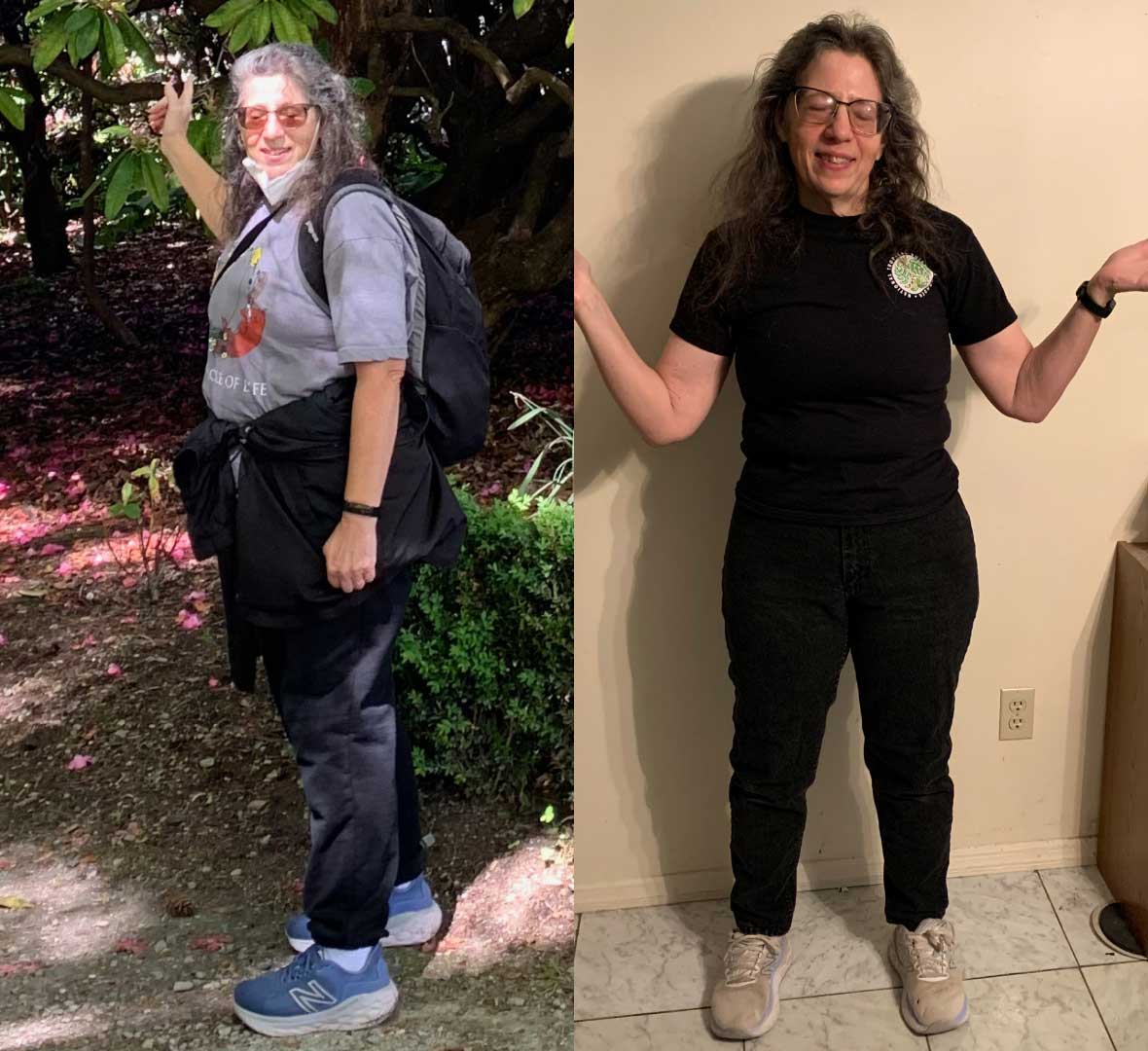

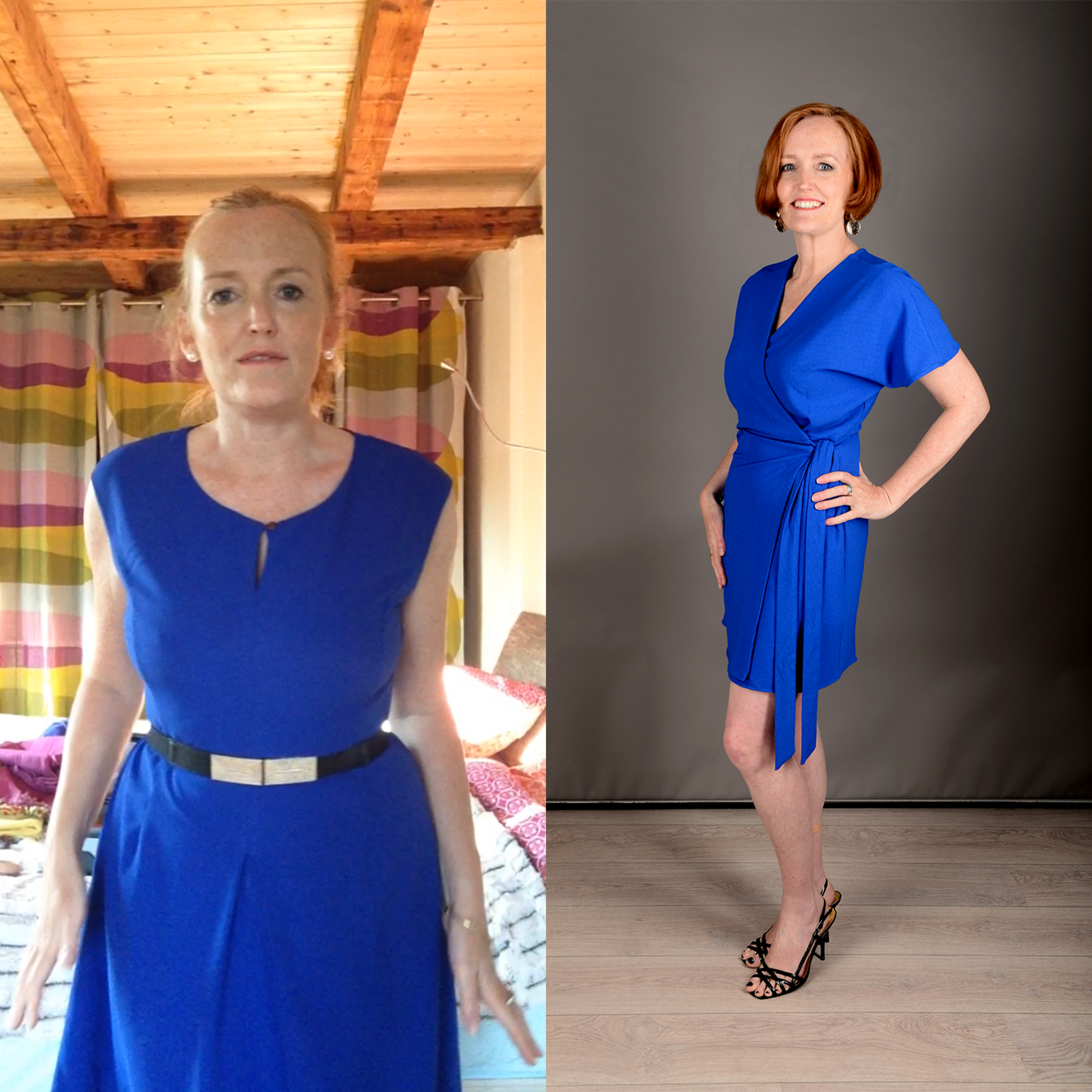



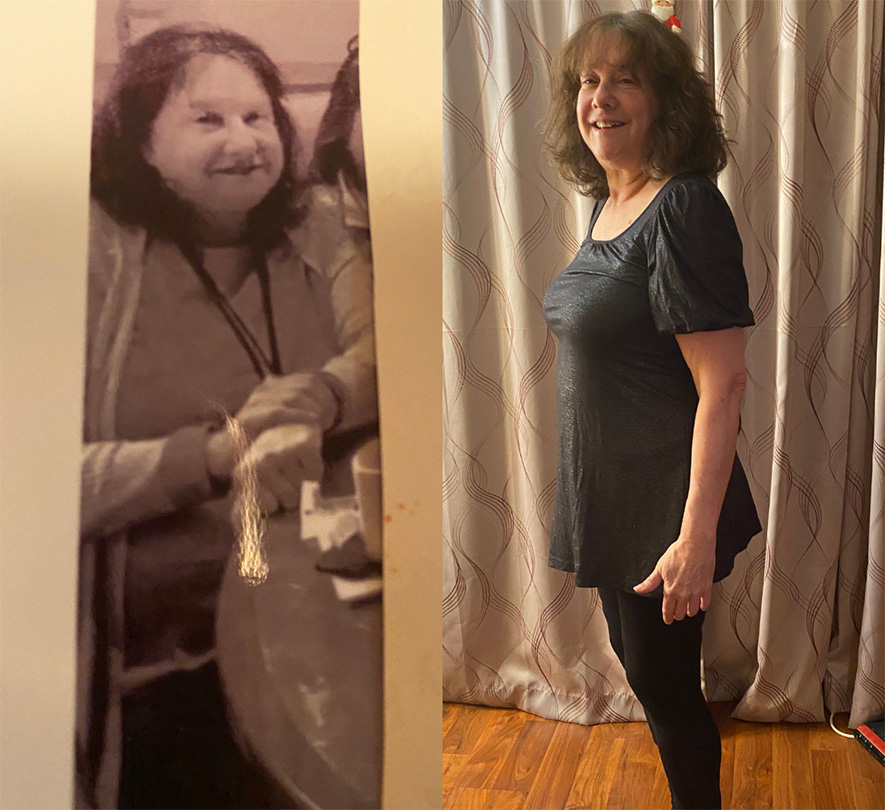





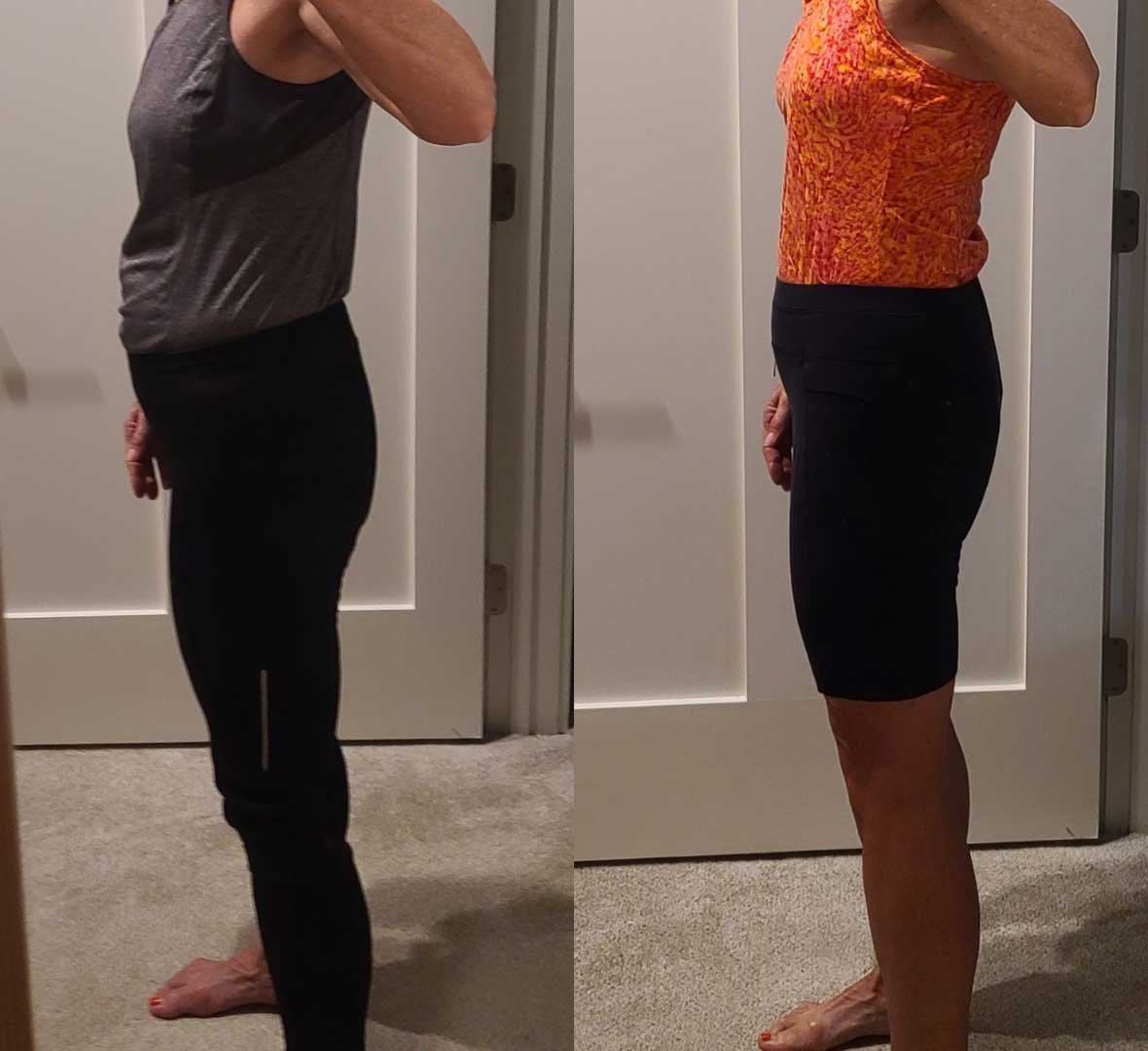









Reader Interactions